The Heart Truth® For Women Social Media Resources
Share these graphics and sample posts on social media to raise awareness about heart disease in women. To use these graphics, right click on each one and select "Save Image as..." or click on the download button to save them on your device.
Follow The Heart Truth® program on Instagram, X, Pinterest and Facebook to learn more about heart health and find resources to help you create a self-care plan for your heart.
Visit the Women and Heart Disease page to find complementary Yes, YOU! fact sheets, videos, and more about women and heart disease.
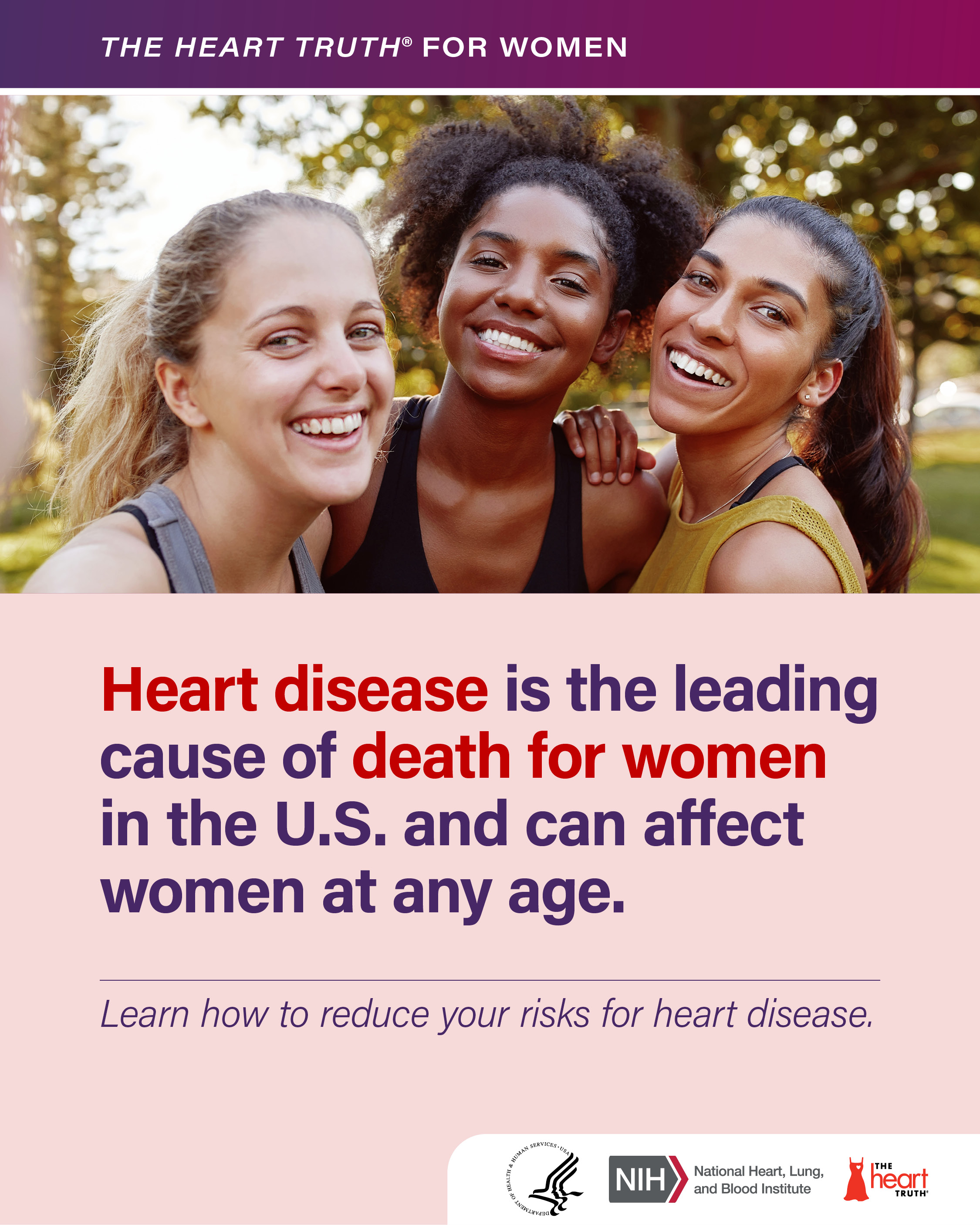

Learn how you can reduce your risk of heart disease.
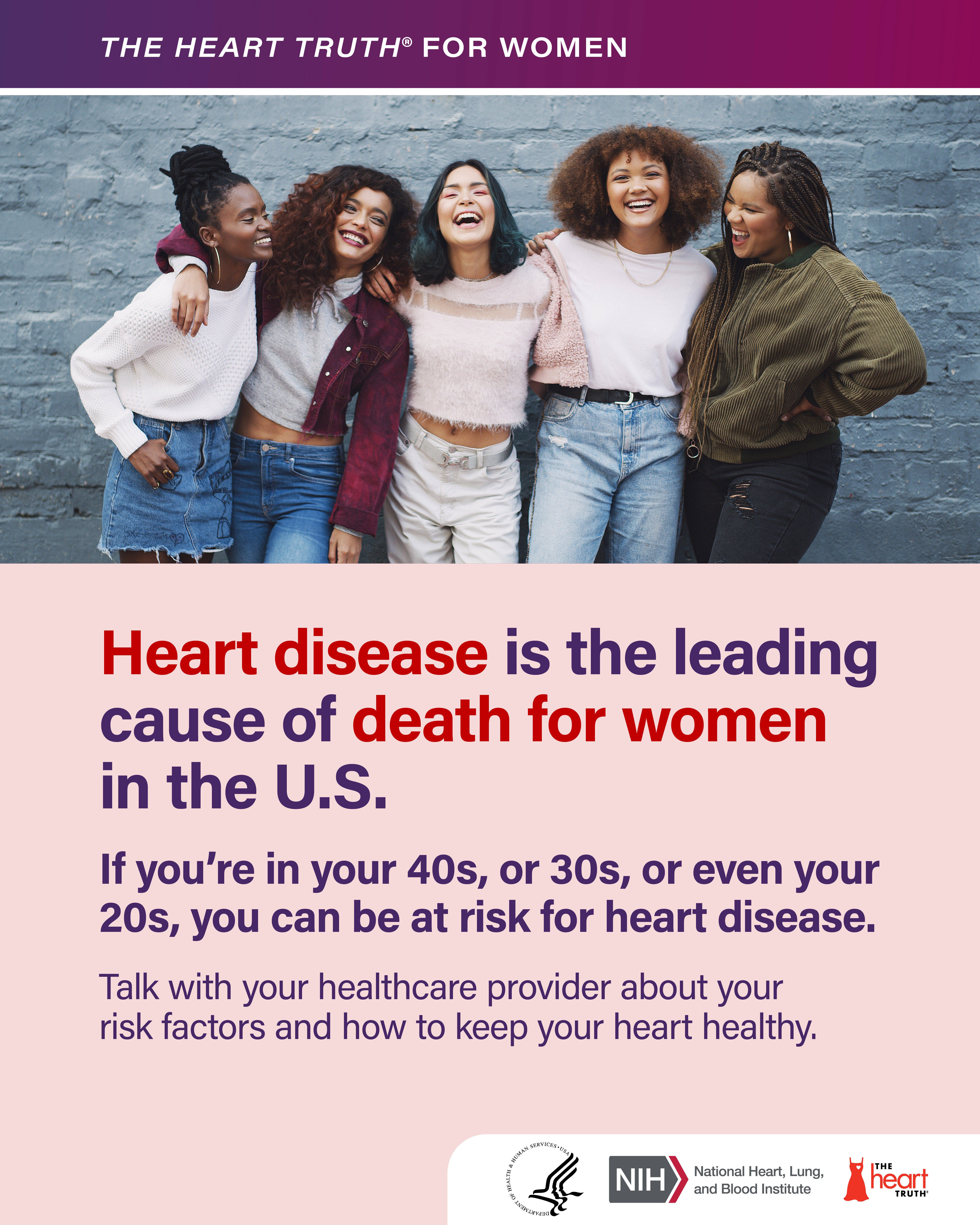

If you’re in your 40s, or 30s, or even your 20s, you can be at risk for heart disease. Talk with your healthcare provider about your risk factors and how to keep your heart healthy.
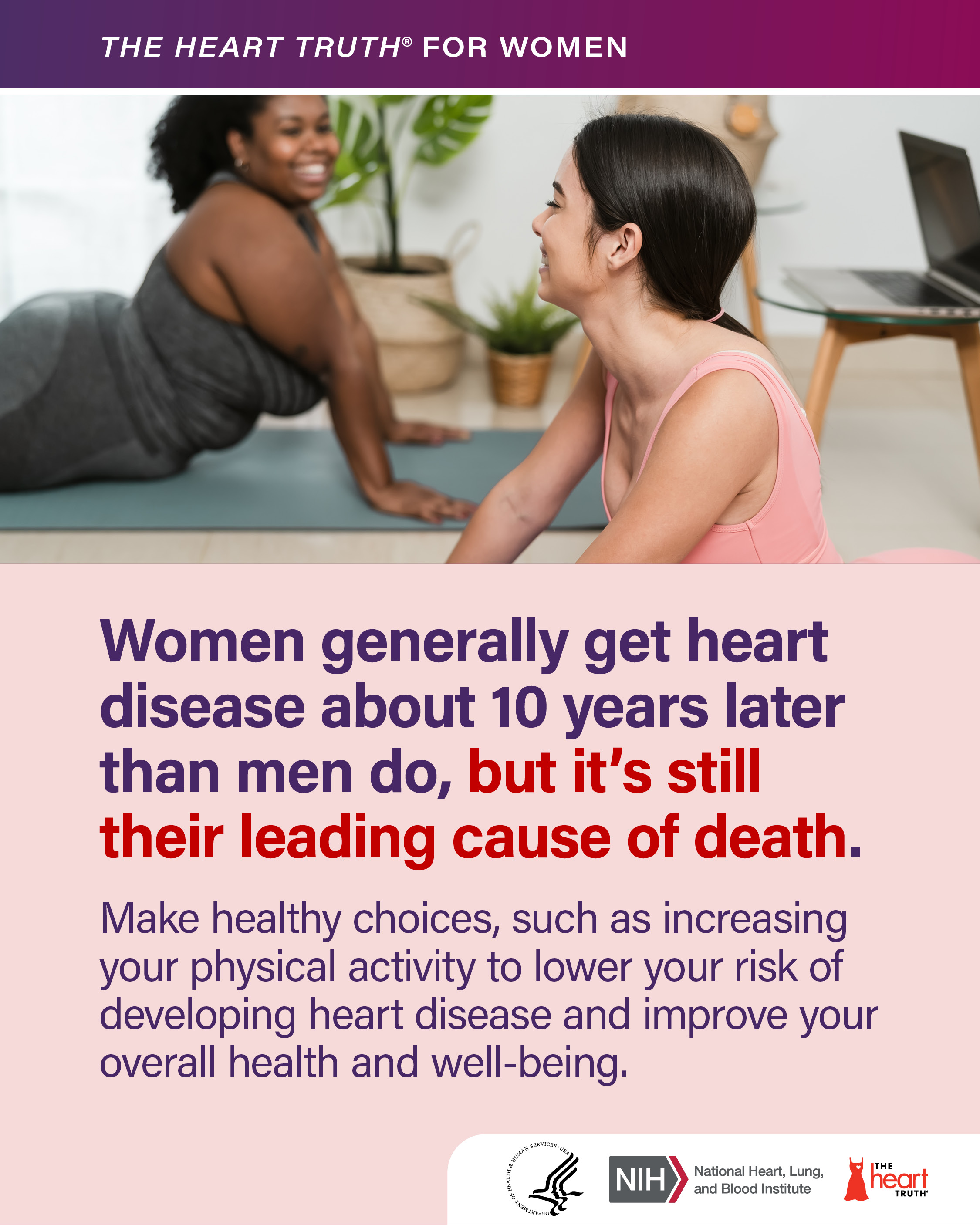

Make healthy choices such as increasing your physical activity to lower your risk of developing heart disease and improve your overall health and well-being.
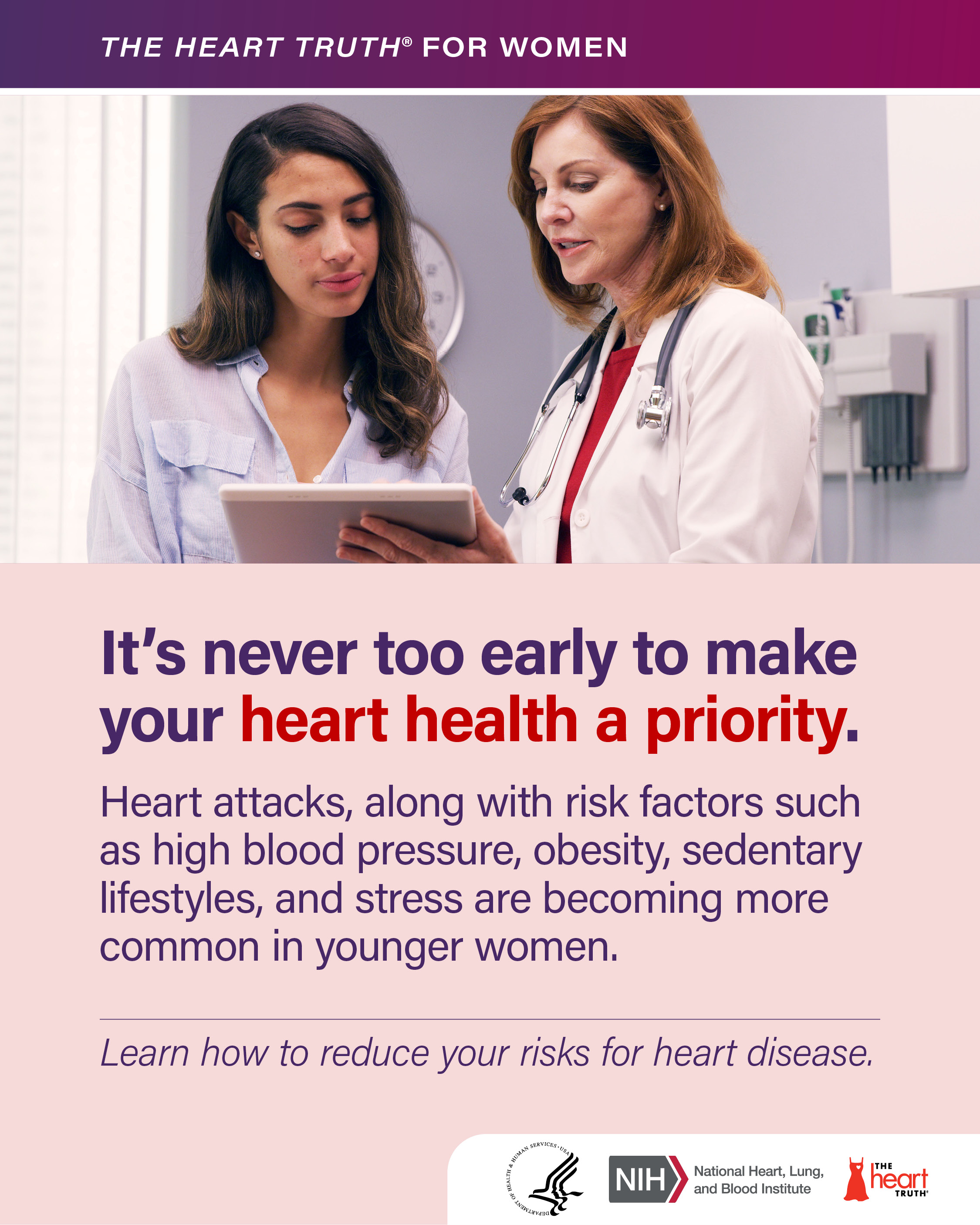

Heart attacks, along with risk factors such as high blood pressure, obesity, sedentary lifestyles, and stress are becoming more common in younger women.
Learn how to reduce your risks for heart disease.


Set specific, measurable, attainable, relevant, and timebound goals for a heart-healthy lifestyle.
Take one goal, or risk factor, at a time and take small steps toward your goal.
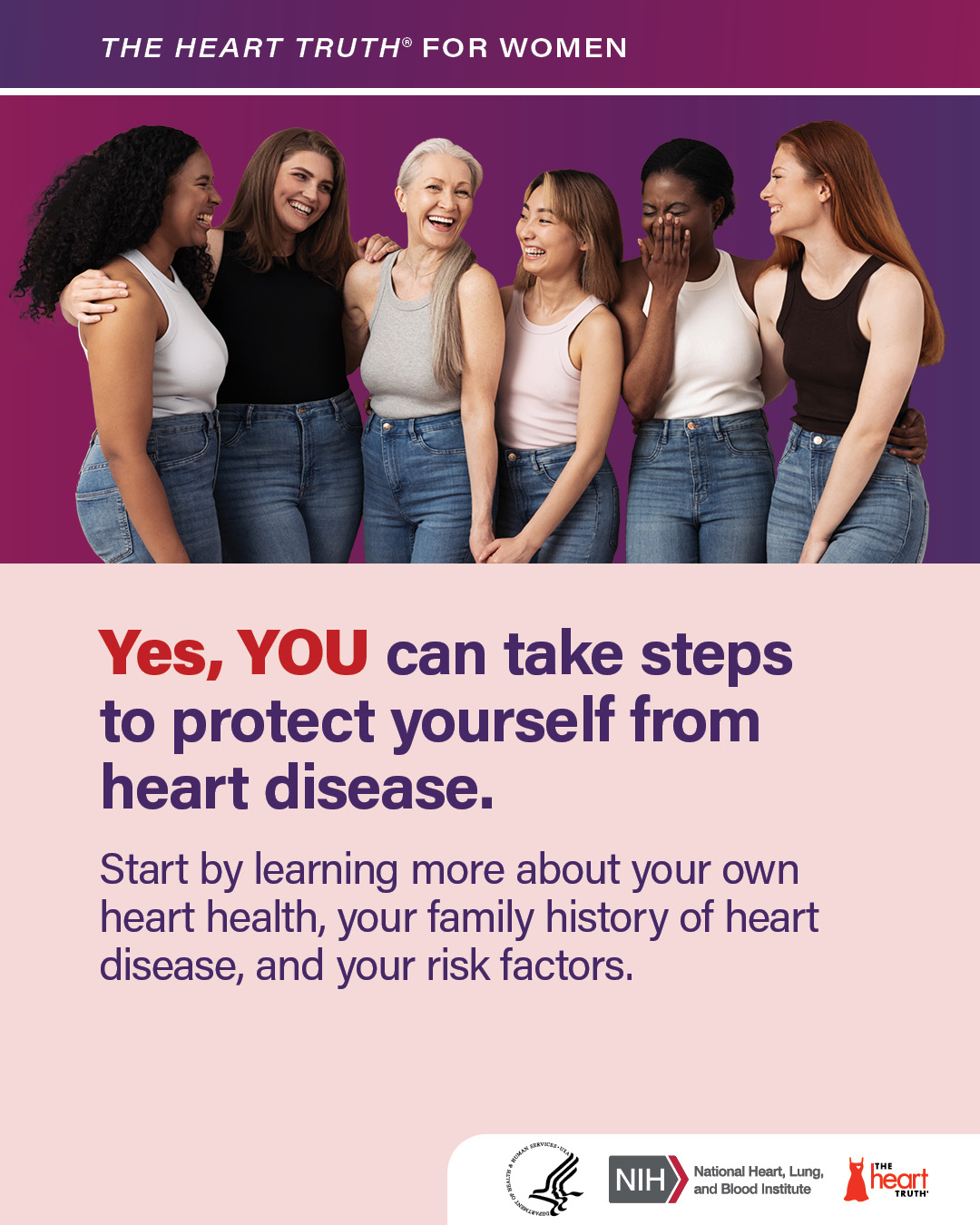

Start by learning more about your own heart health, your family history of heart disease, and your risk factors.
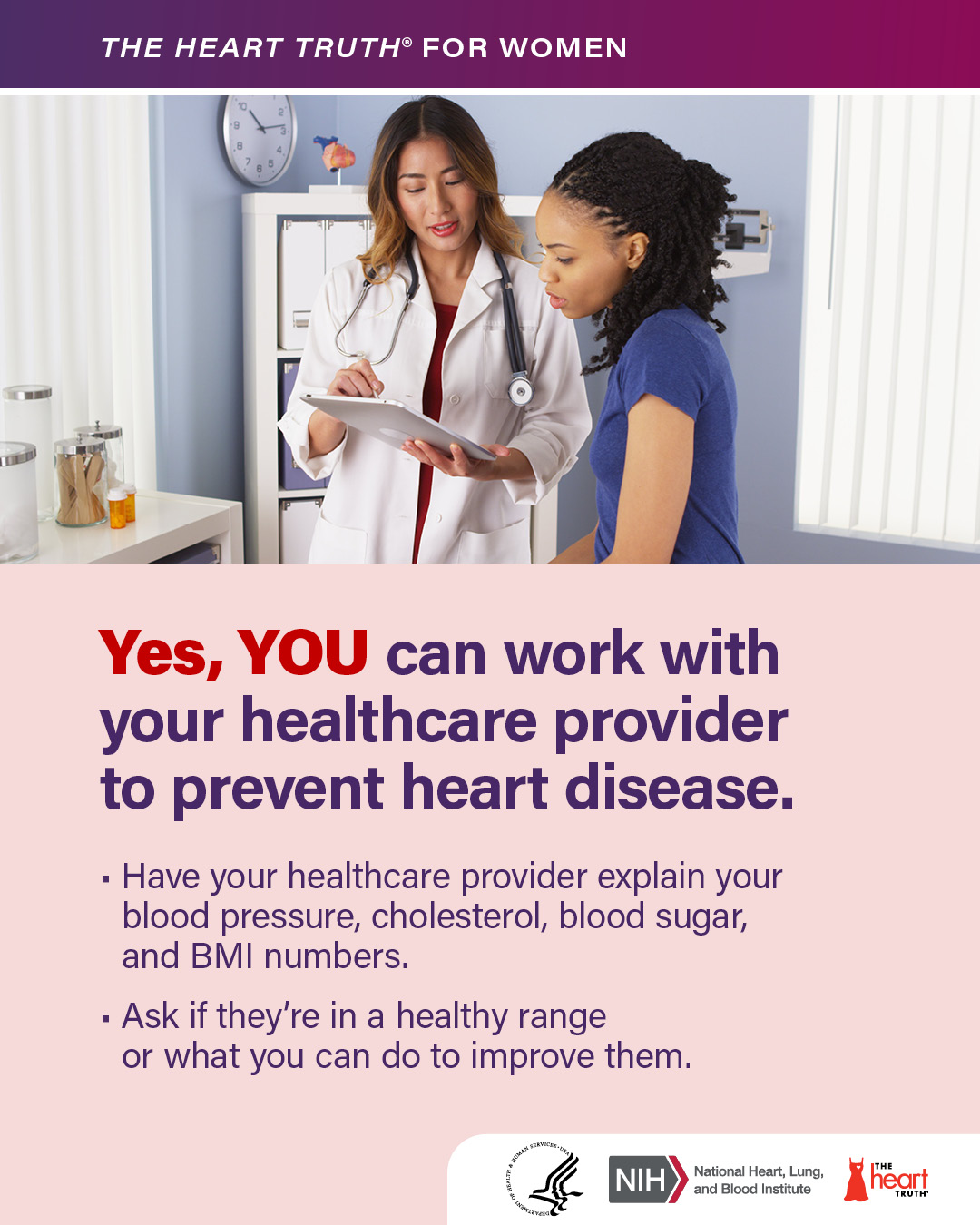

- Have your healthcare provider explain your blood pressure, cholesterol, blood sugar, and BMI numbers.
- Ask if they’re in a healthy range or what you can do to improve them.


Yes, YOU can learn how to prevent heart disease.
African American women ages 20 and older experience heart disease and are more likely to have risk factors for heart disease, like high blood pressure, at younger ages compared to white women.


Yes, YOU can learn how to prevent heart disease.
Hispanic/Latina women are more likely to develop heart disease 10 years earlier than non-Hispanics and have significant risk factors for heart disease, like high blood pressure.
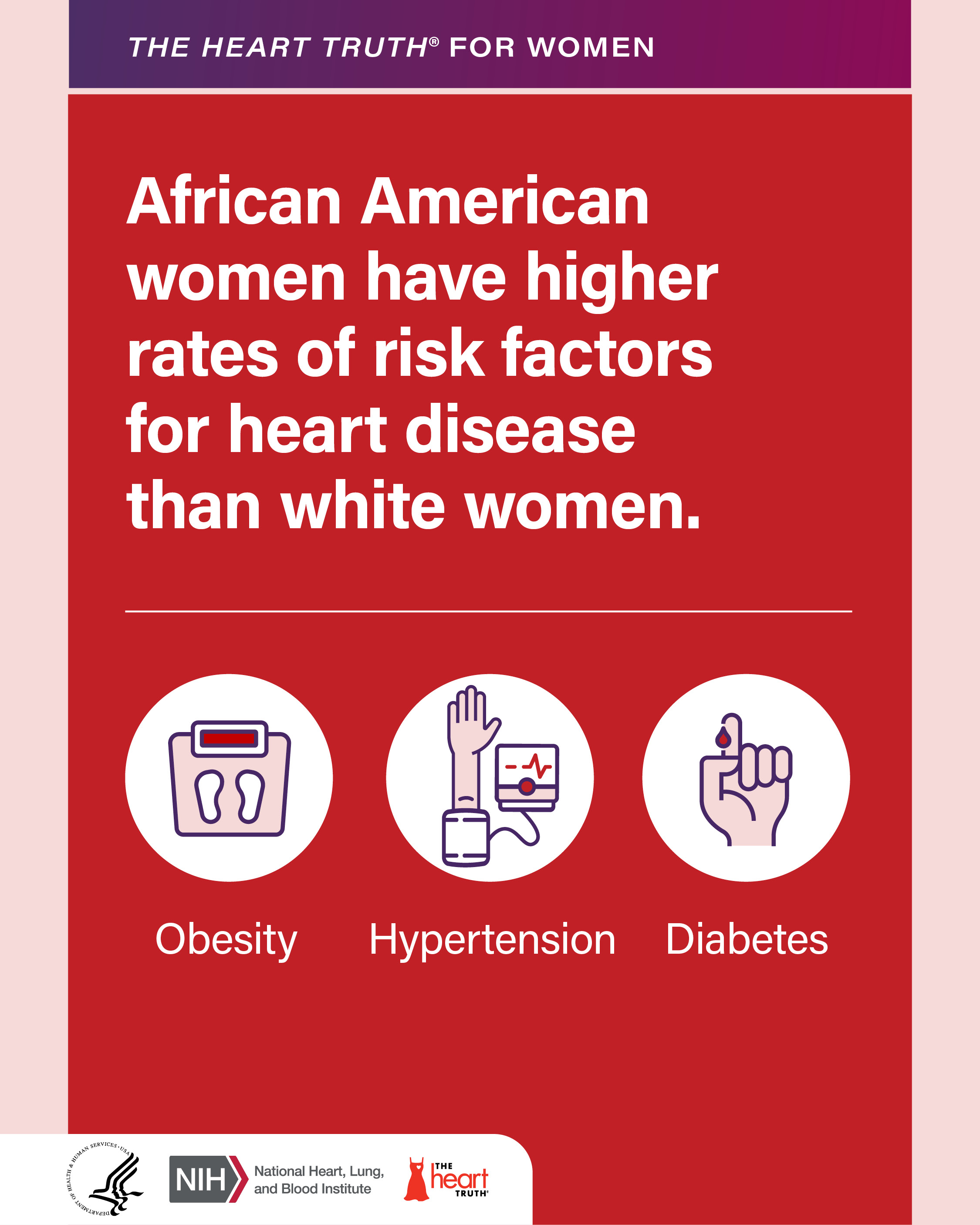

African American women have higher rates of risk factors for heart disease than white women.
- Obesity
- Hypertension
- Diabetes
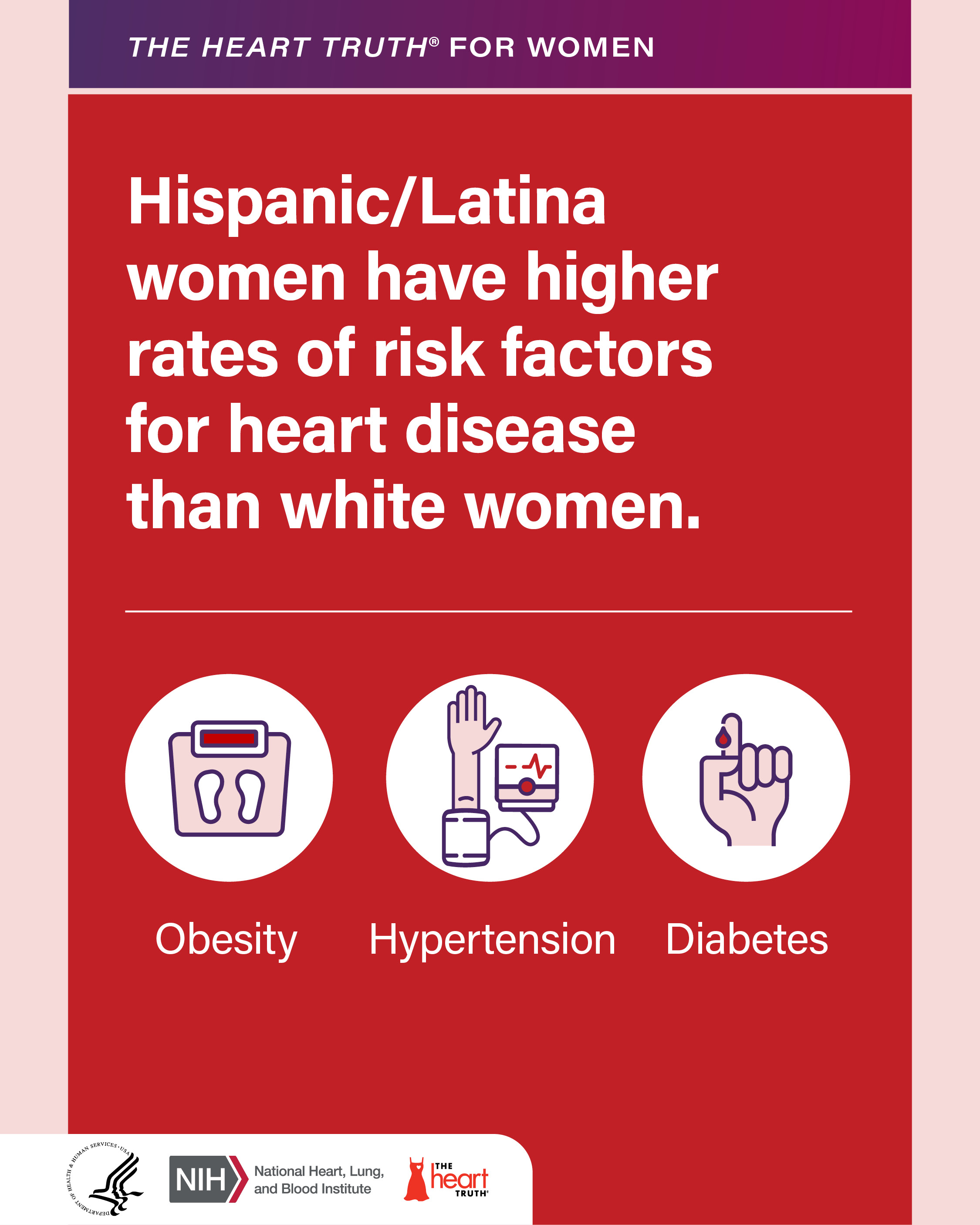

Hispanic/Latina women have higher rates of risk factors for heart disease than white women.
- Obesity
- Hypertension
- Diabetes
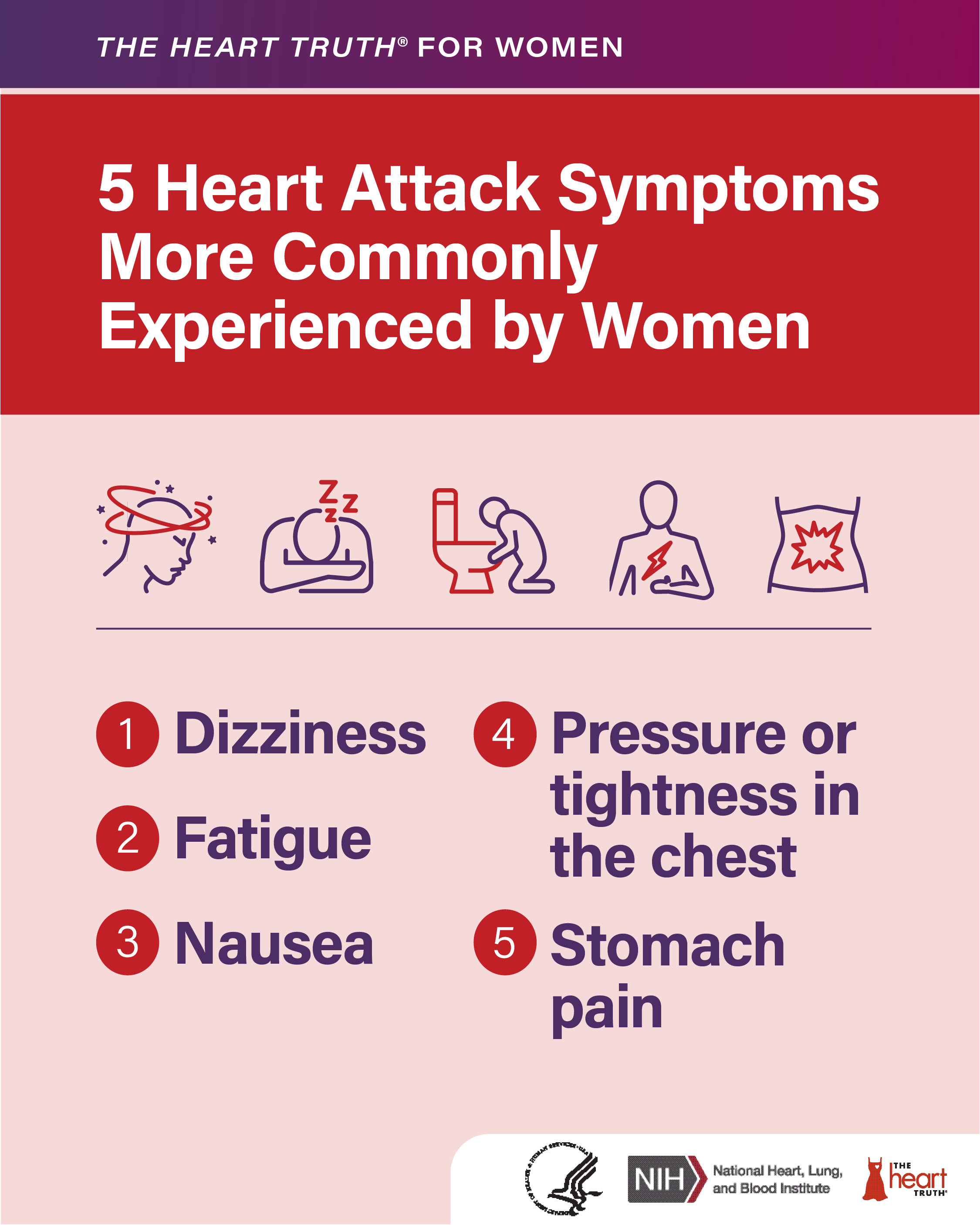

- Dizziness
- Fatigue
- Nausea
- Pressure or tightness in the chest
- Stomach pain
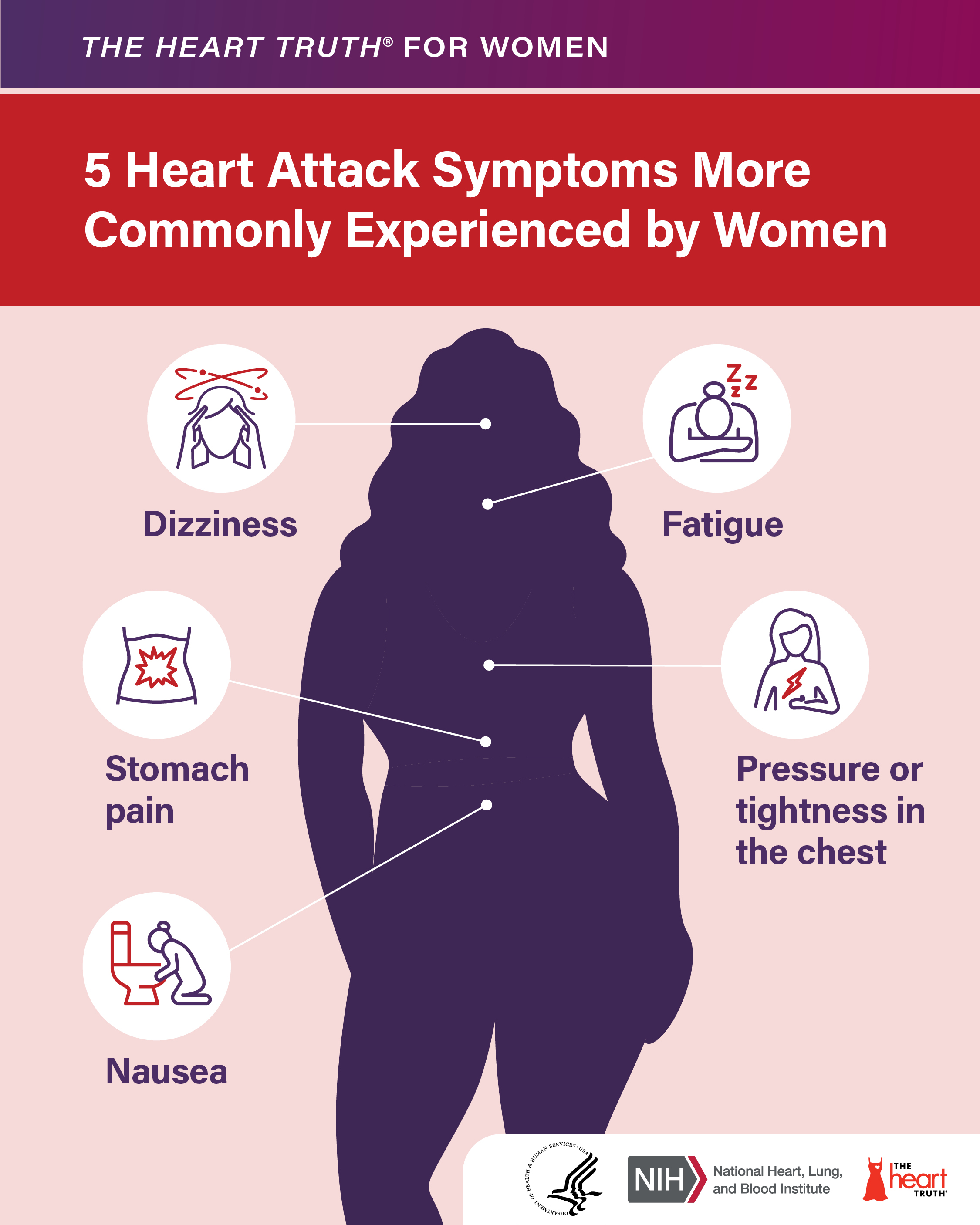

- Dizziness
- Fatigue
- Nausea
- Pressure or tightness in the chest
- Stomach pain
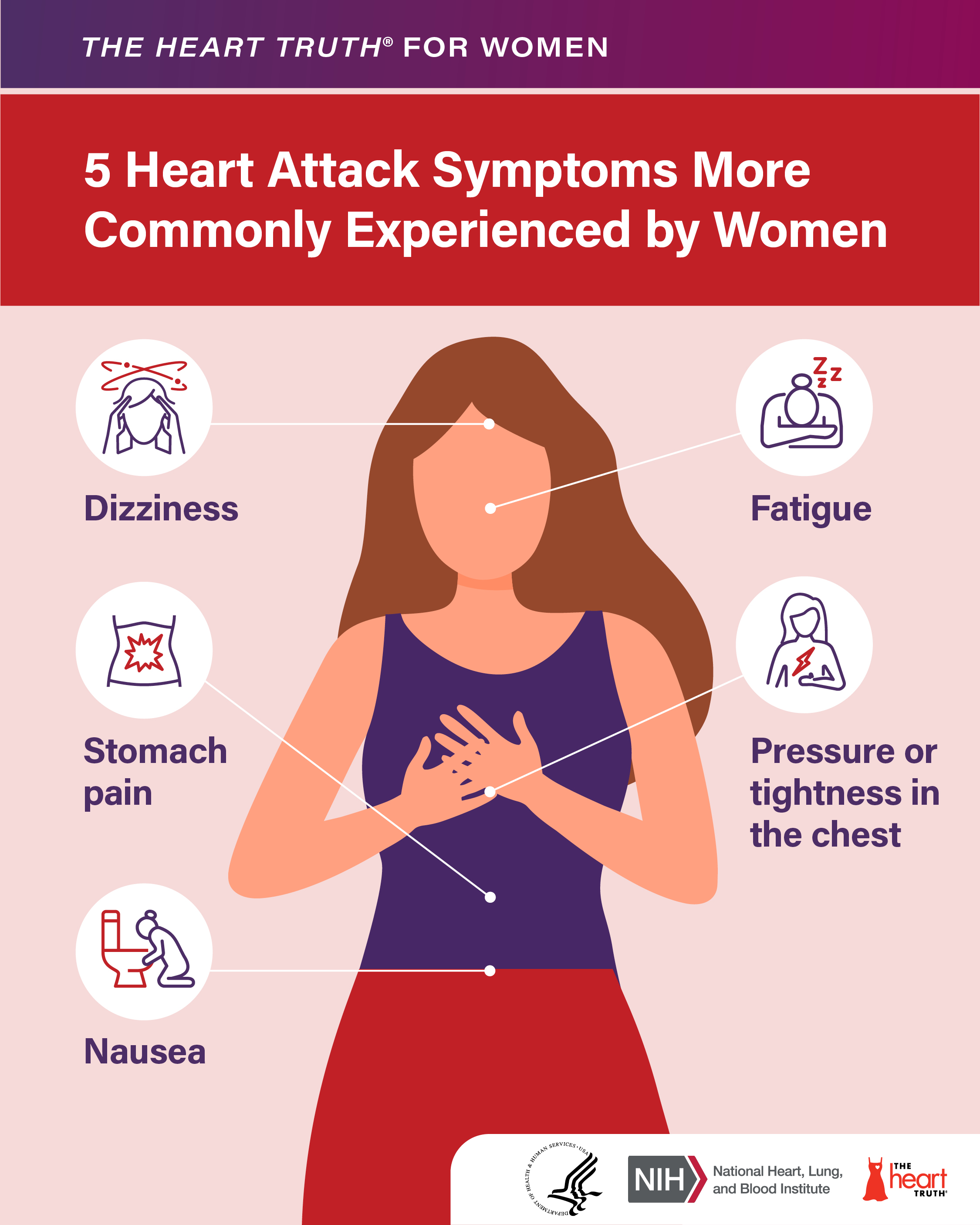

- Dizziness
- Fatigue
- Nausea
- Pressure or tightness in the chest
- Stomach pain
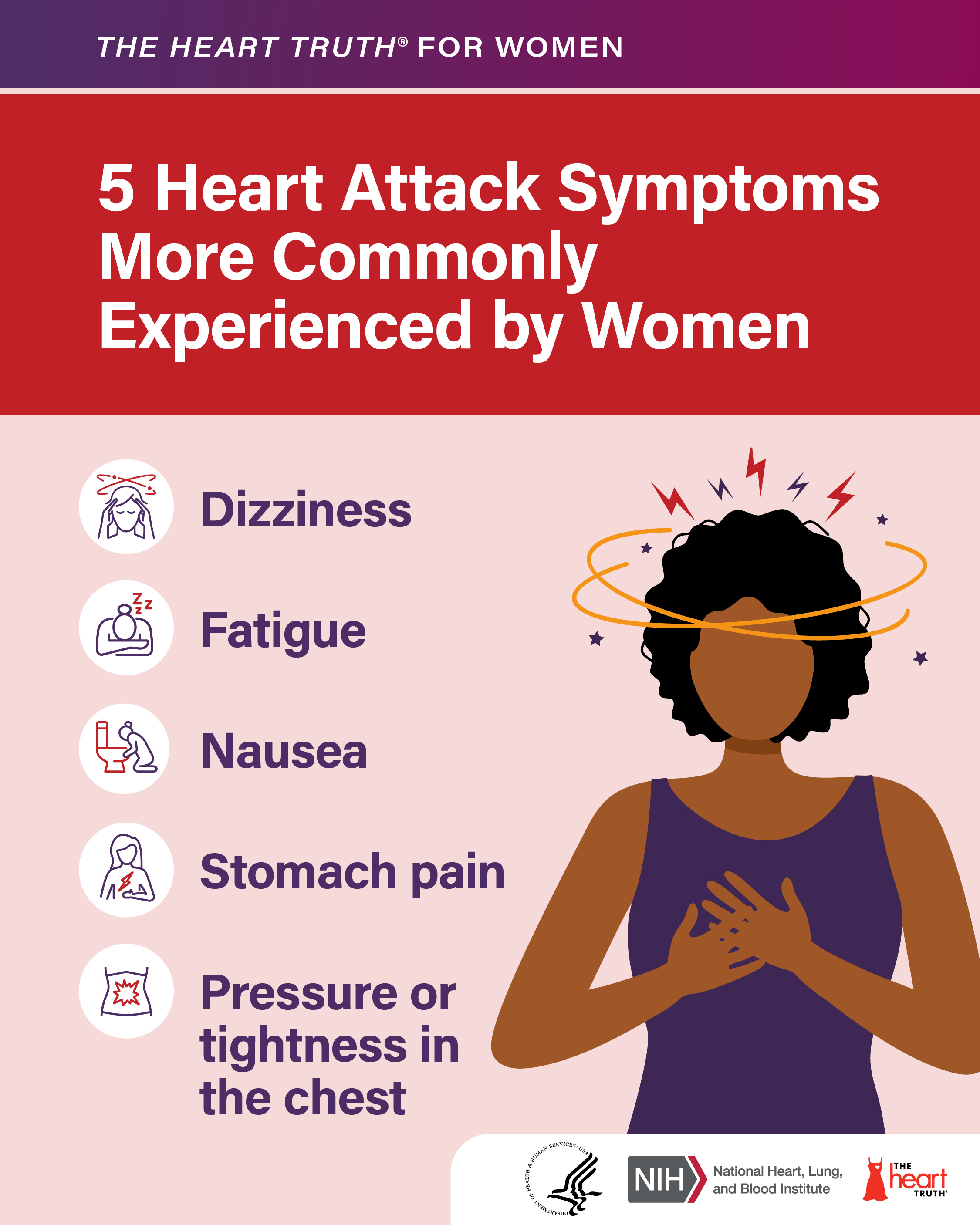

- Dizziness
- Fatigue
- Nausea
- Pressure or tightness in the chest
- Stomach pain
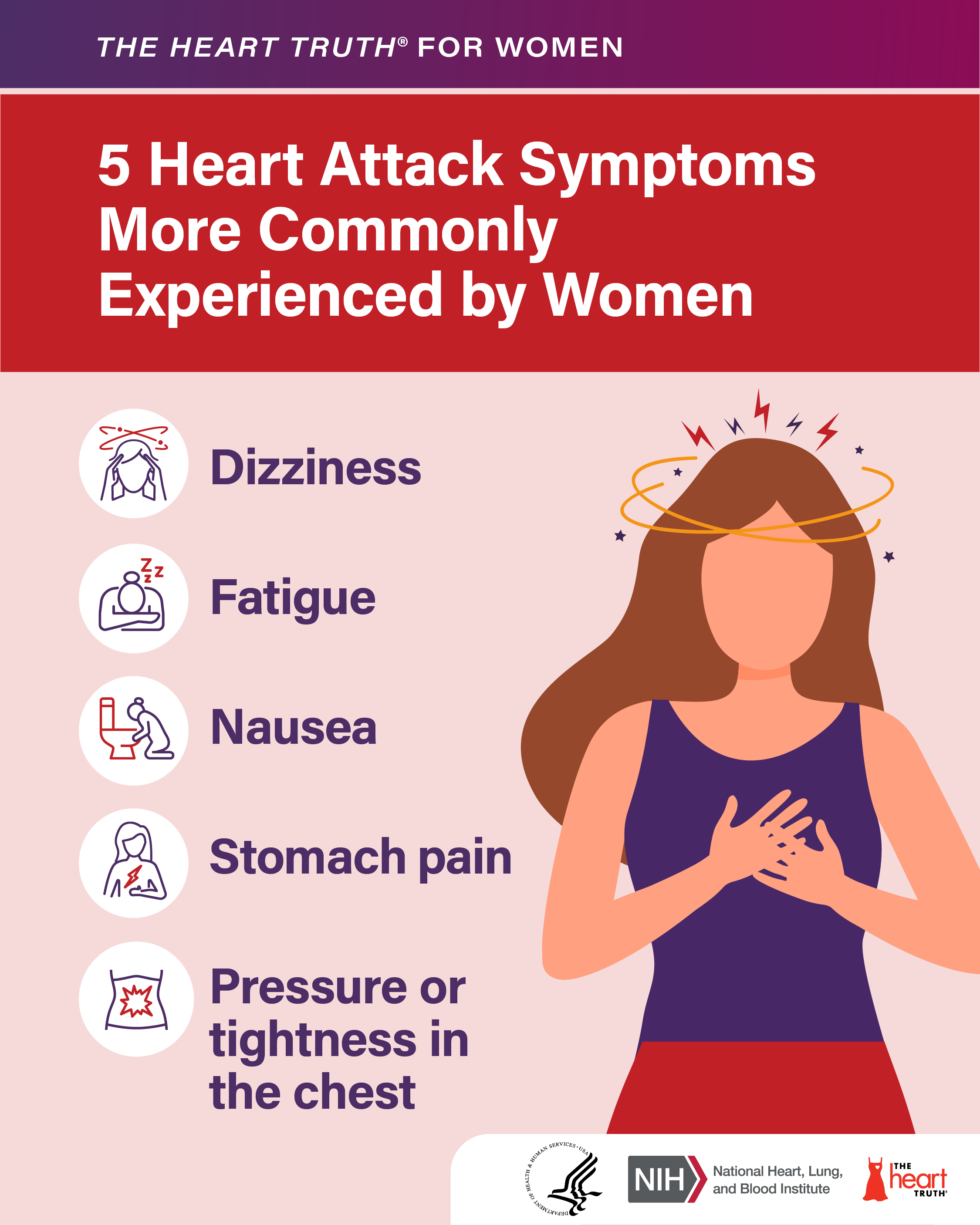

- Dizziness
- Fatigue
- Nausea
- Pressure or tightness in the chest
- Stomach pain
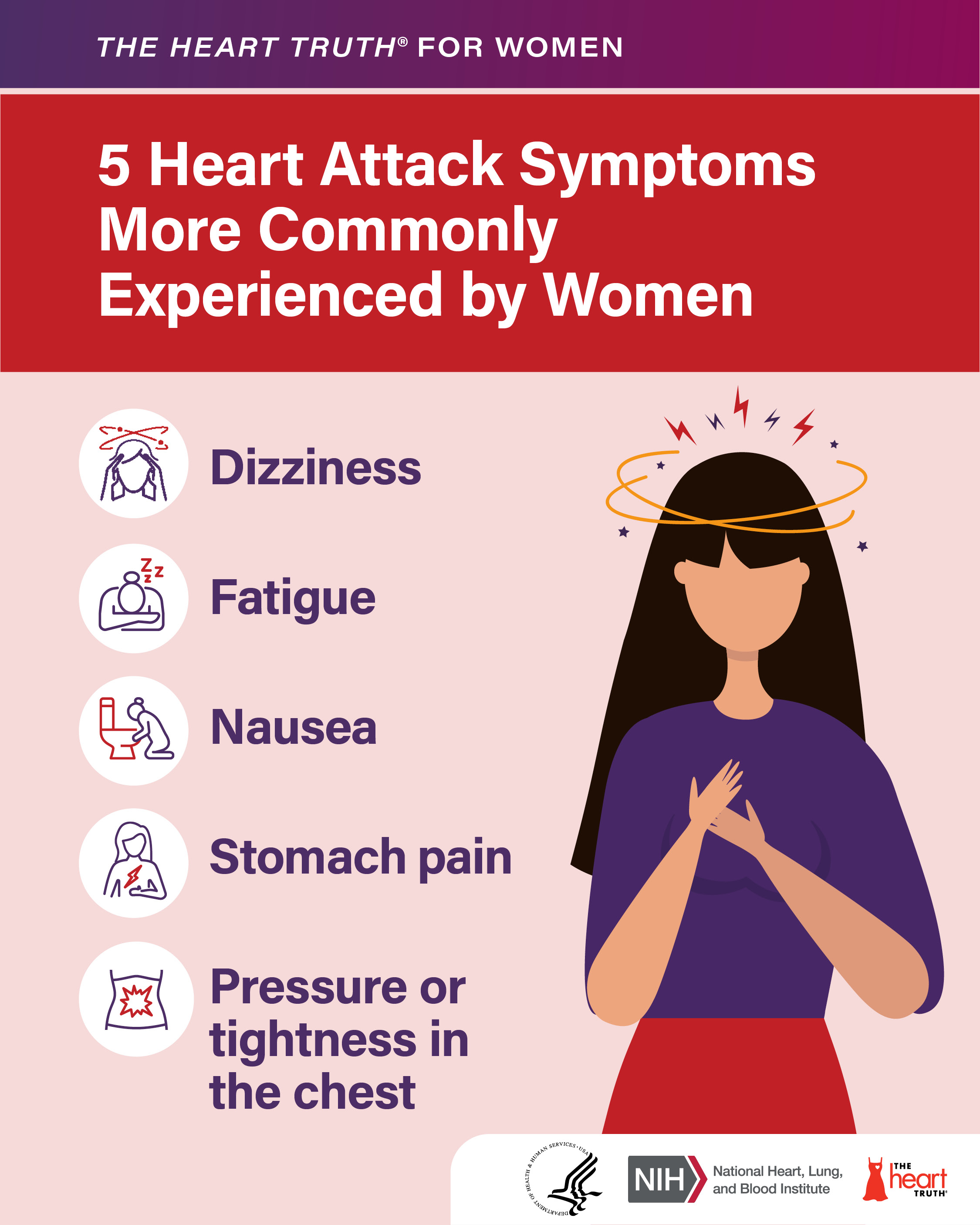

- Dizziness
- Fatigue
- Nausea
- Pressure or tightness in the chest
- Stomach pain
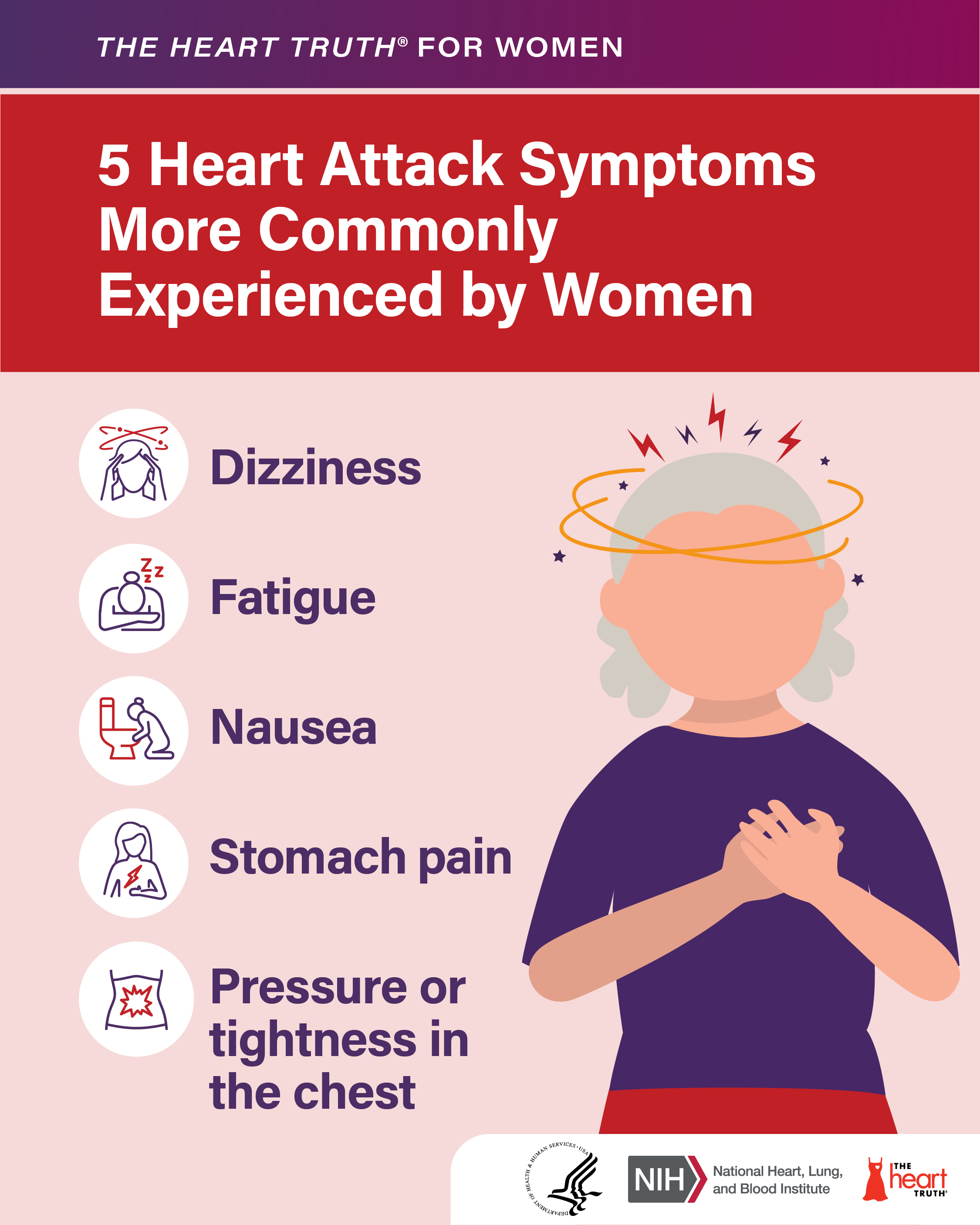

- Dizziness
- Fatigue
- Nausea
- Pressure or tightness in the chest
- Stomach pain
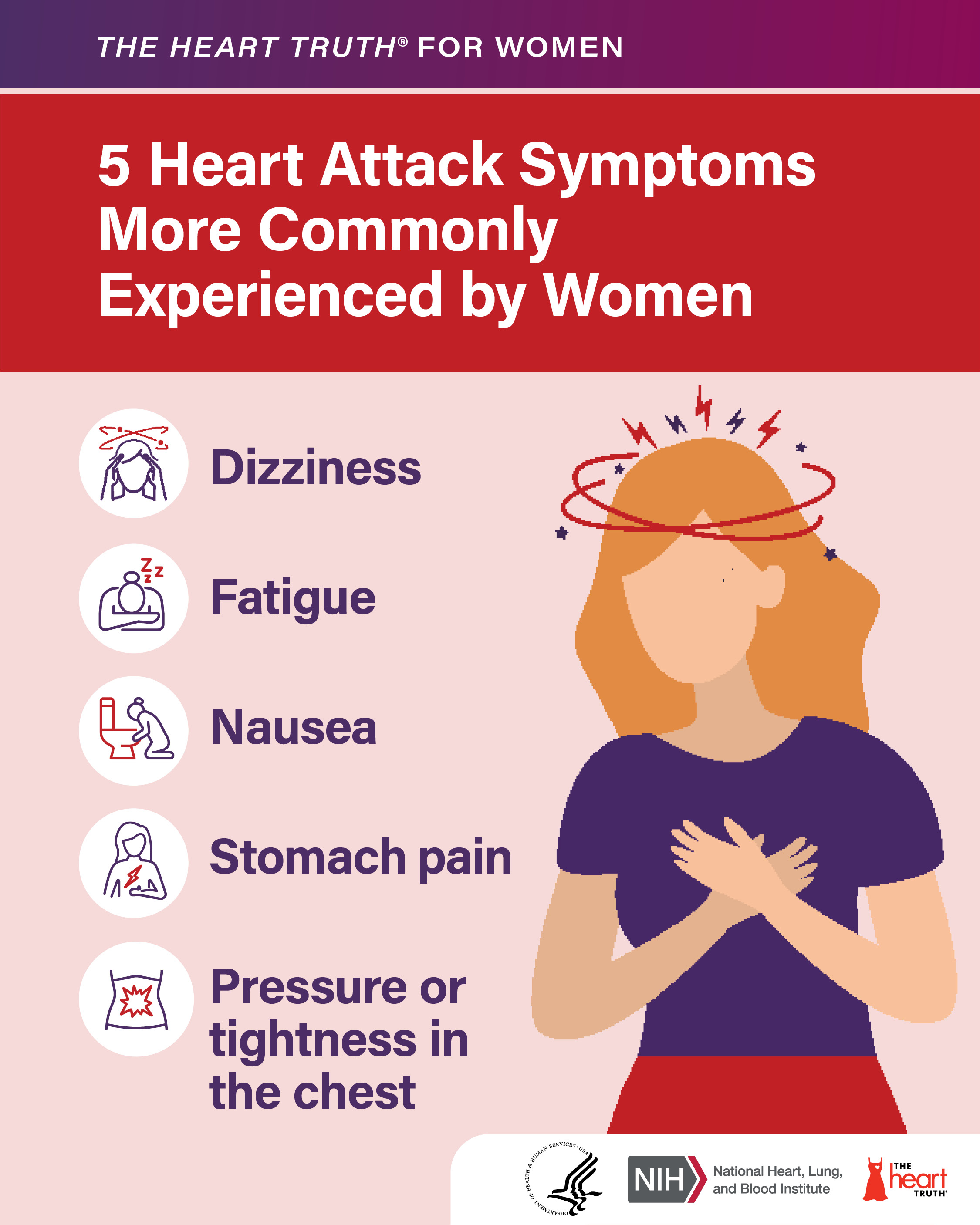

- Dizziness
- Fatigue
- Nausea
- Pressure or tightness in the chest
- Stomach pain
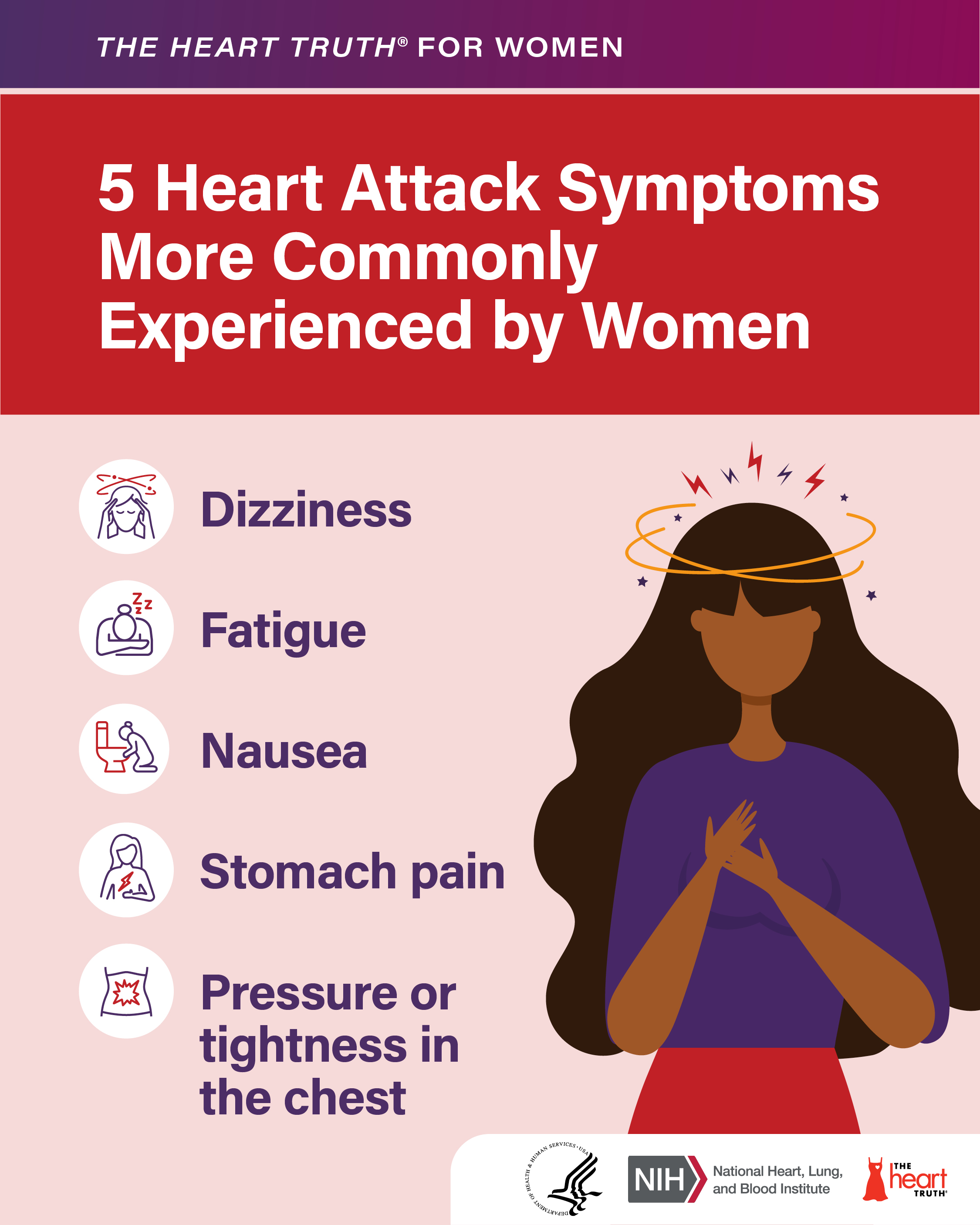

- Dizziness
- Fatigue
- Nausea
- Pressure or tightness in the chest
- Stomach pain
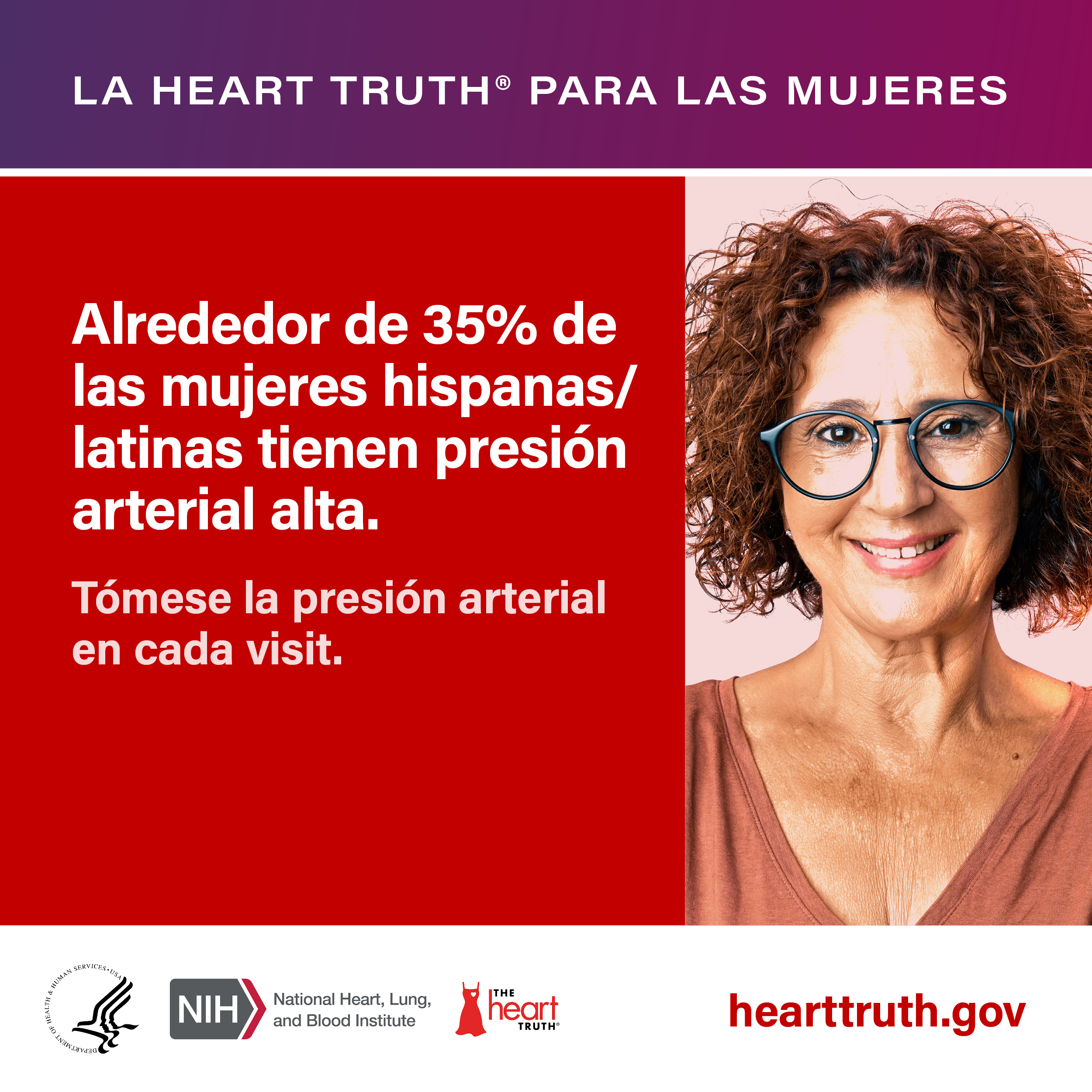

Alrededor de 35% de las mujeres hispanas/latinas tienen presion arterial alta. Tomese la presion arterial en cada visit.
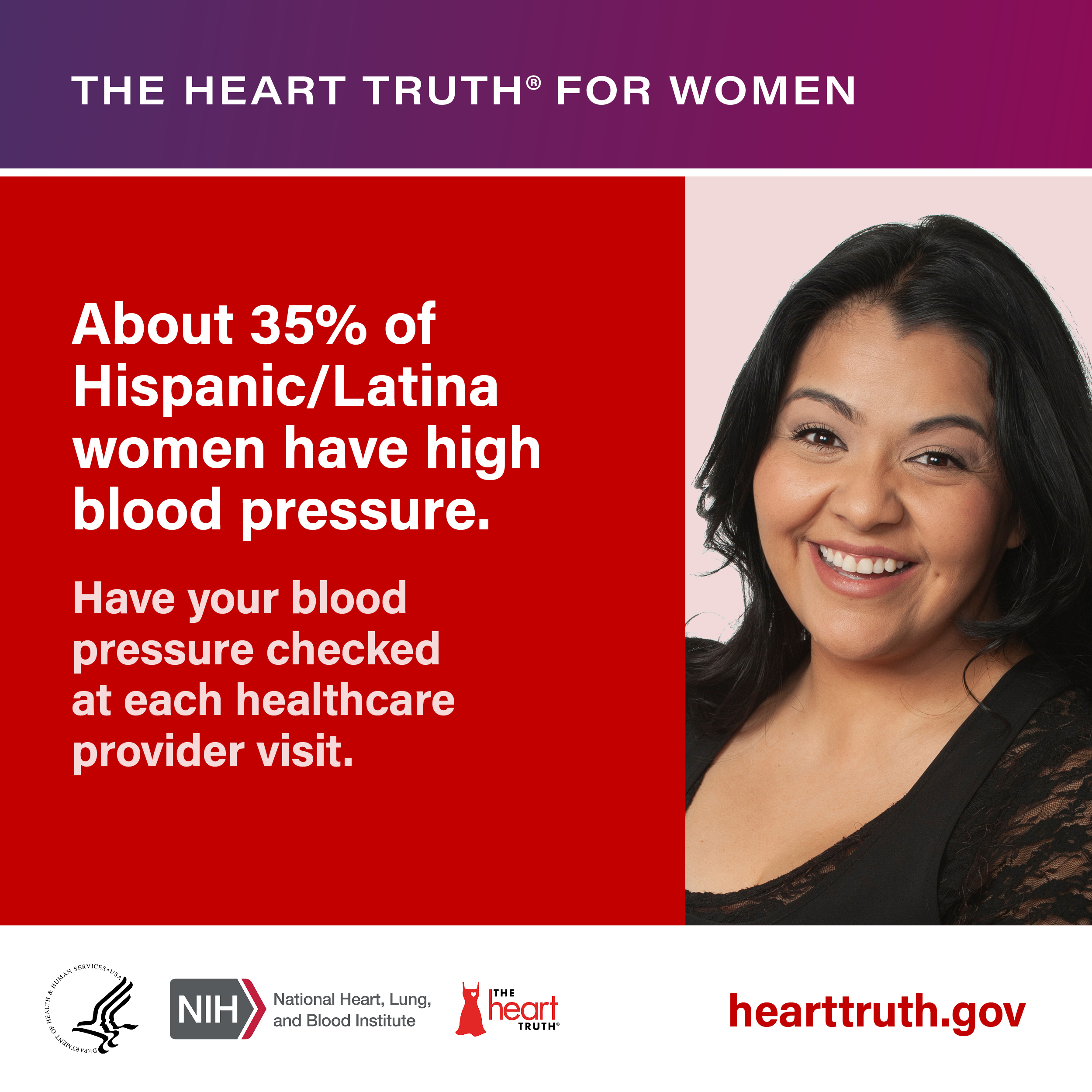

About 35% of Hispanic/Latina women have high blood pressure. Have your blood pressure checked at every healthcare provider visit.
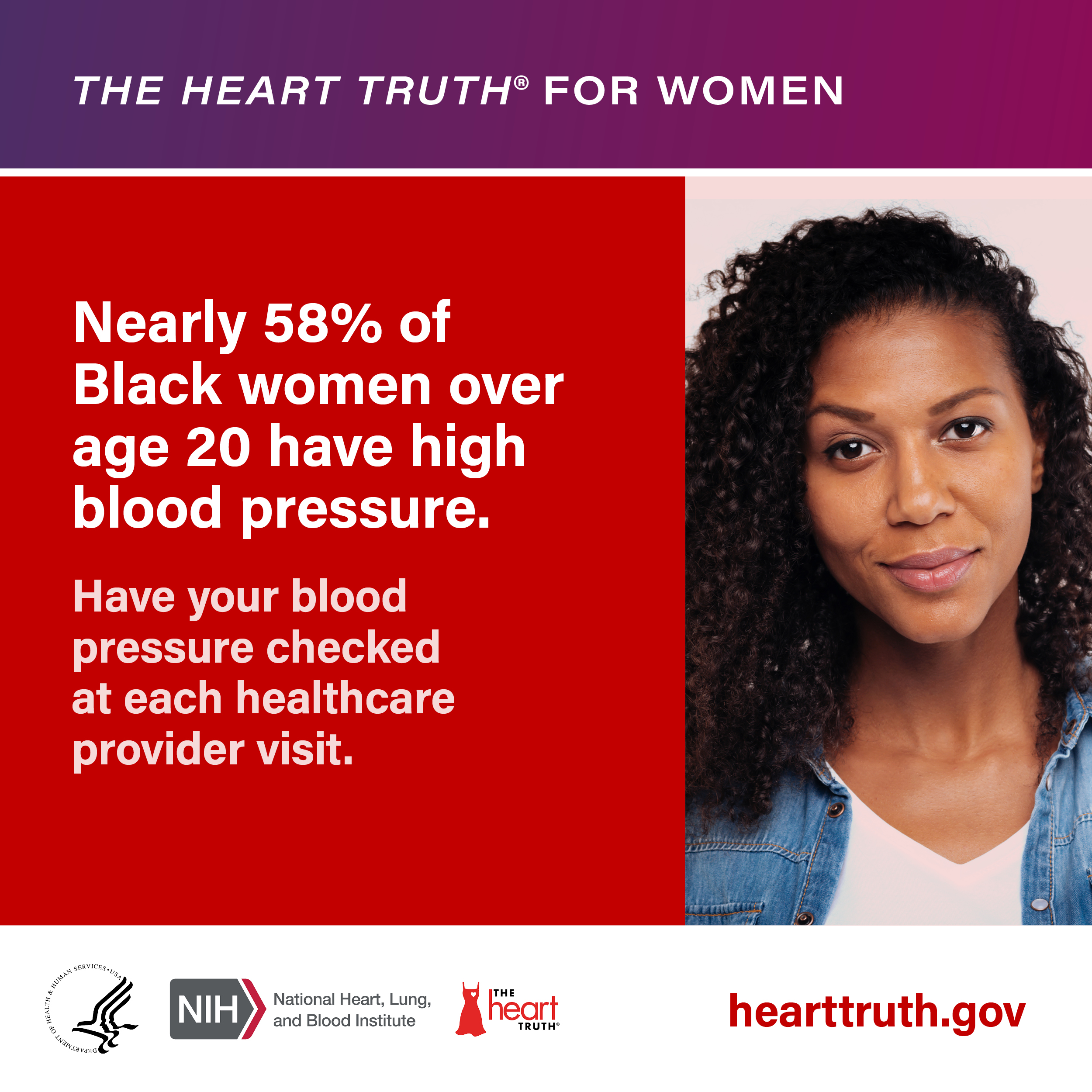

Nearly 58% of Black women over age 20 have high blood pressure. Have your blood pressure checked at every healthcare provider visit.
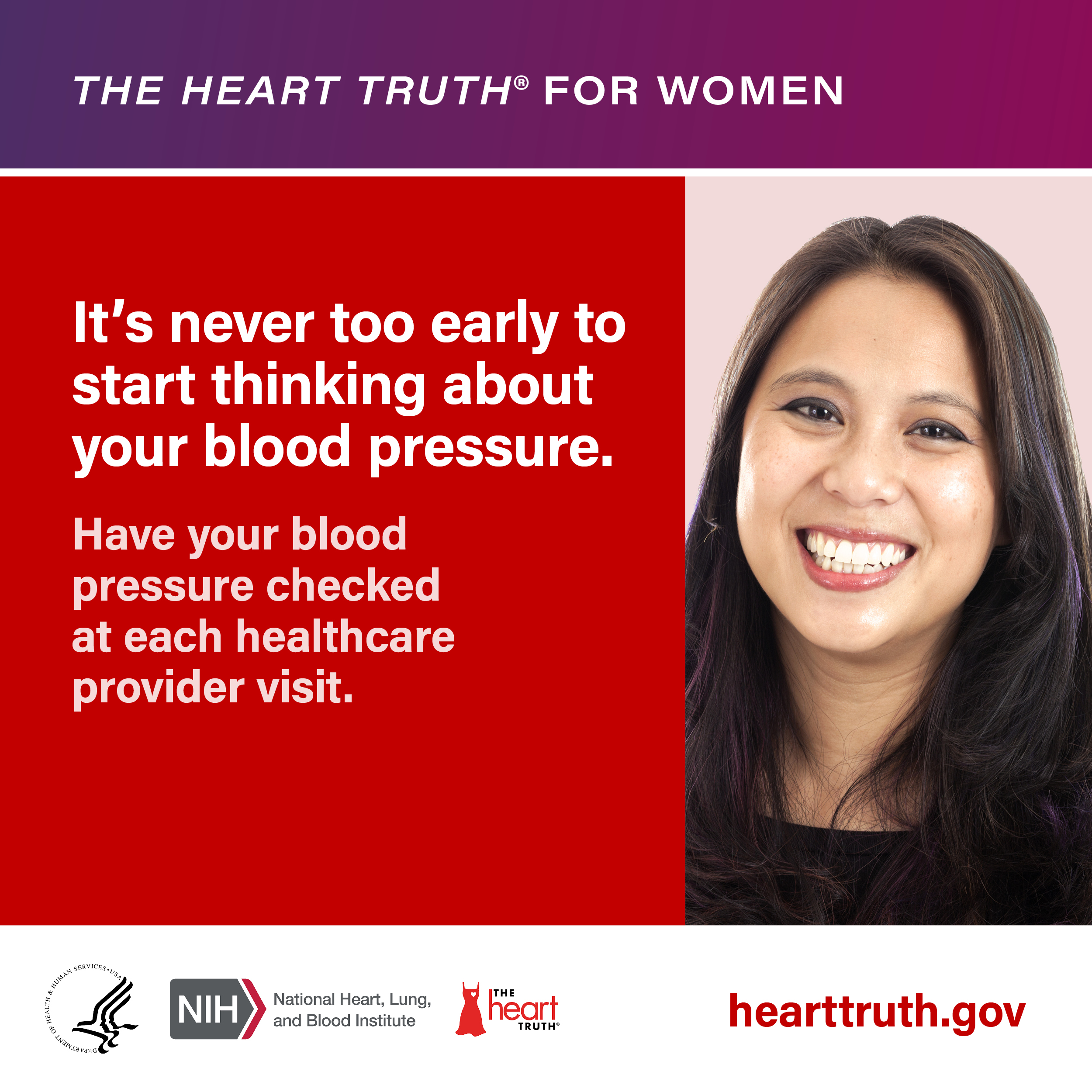

It's never too early to start thinking about your blood pressure. Have your blood pressure checked at every healthcare provider visit.
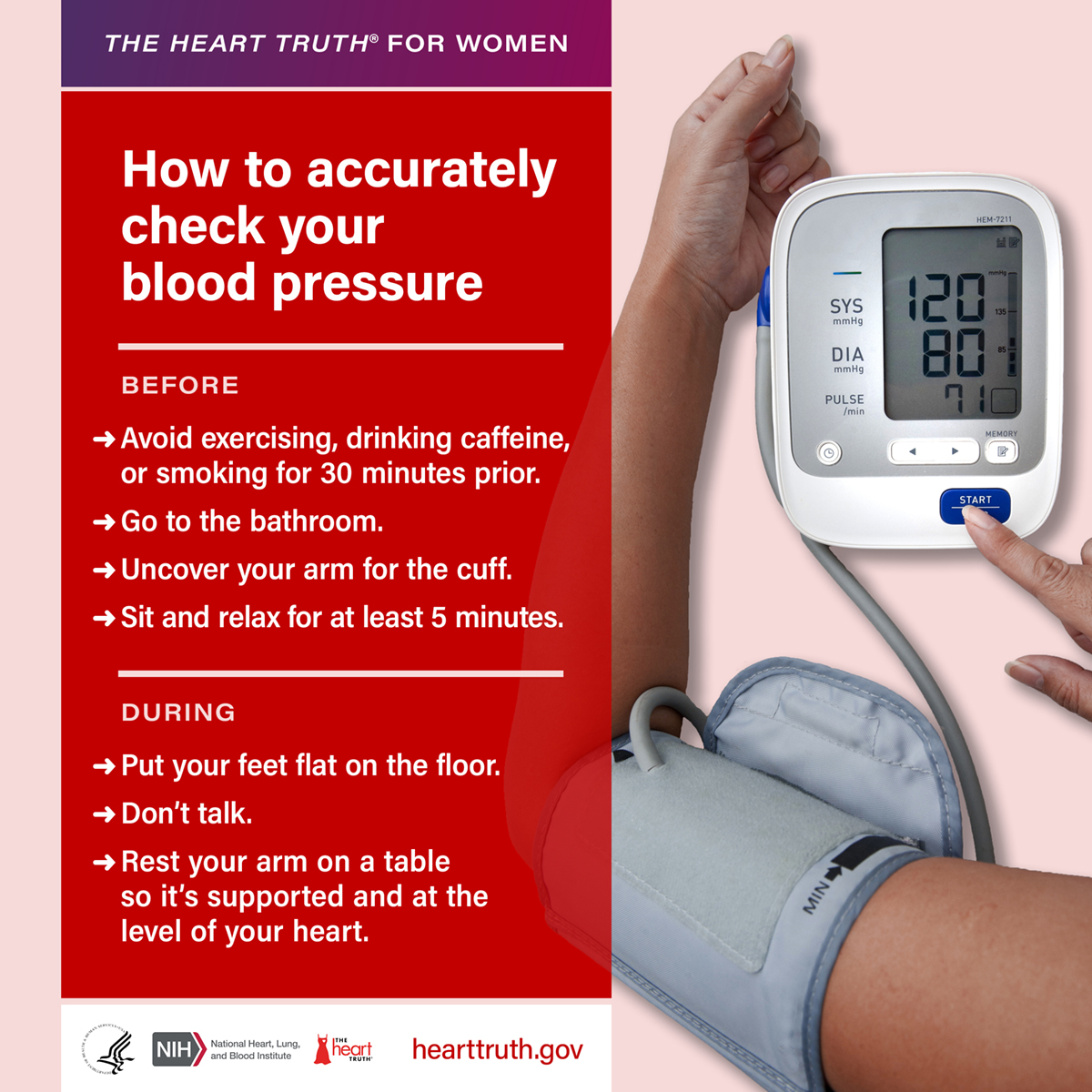

Before: Avoid exercising, drinking caffeine, or smoking for 30 minutes prior. Go to the bathroom. Uncover your arm for the cuff. Sit and relax for at least 5 minutes.
During: Put your feet flat on the floor. Don't talk. Rest your arm on a table so it's supported and at the level of your heart.


High blood pressure can go undetected for a long time while it's damaging your body. Put yourself first.
Pay attention to possible warning signs: Tiredness, loss of energy, sleep disturbances, hot flashes and sweating, fluid retention, headaches, blurred vision, chest pain - some women report their bra feeling too tight.
Have your blood pressure checked at every healthcare provider visit.
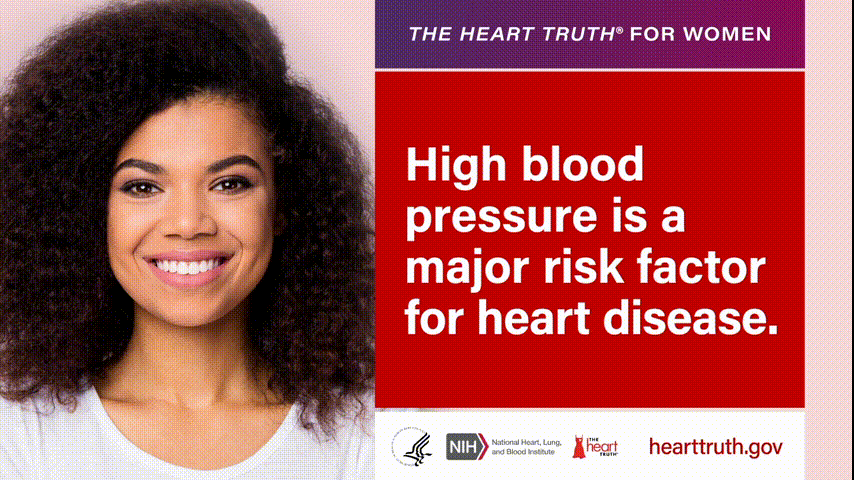

High blood pressure is a major risk factor for heart disease. Nearly 19% of women in their 20s and 30s have high blood pressure. You don't have to be one of them.
Have your blood pressure checked at every healthcare provider visit.
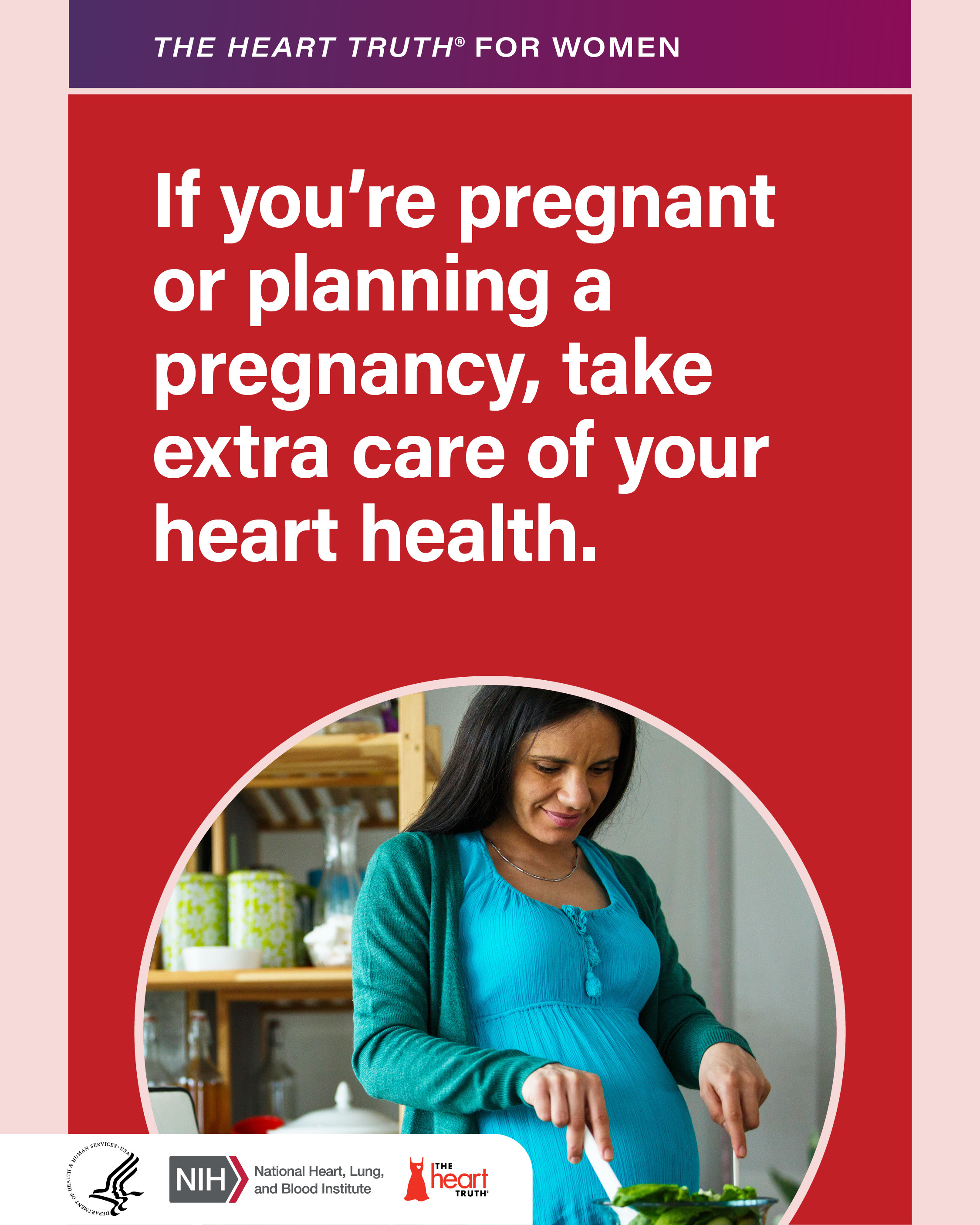

If you're pregnant or planning a pregnancy, take extra care of your heart health.
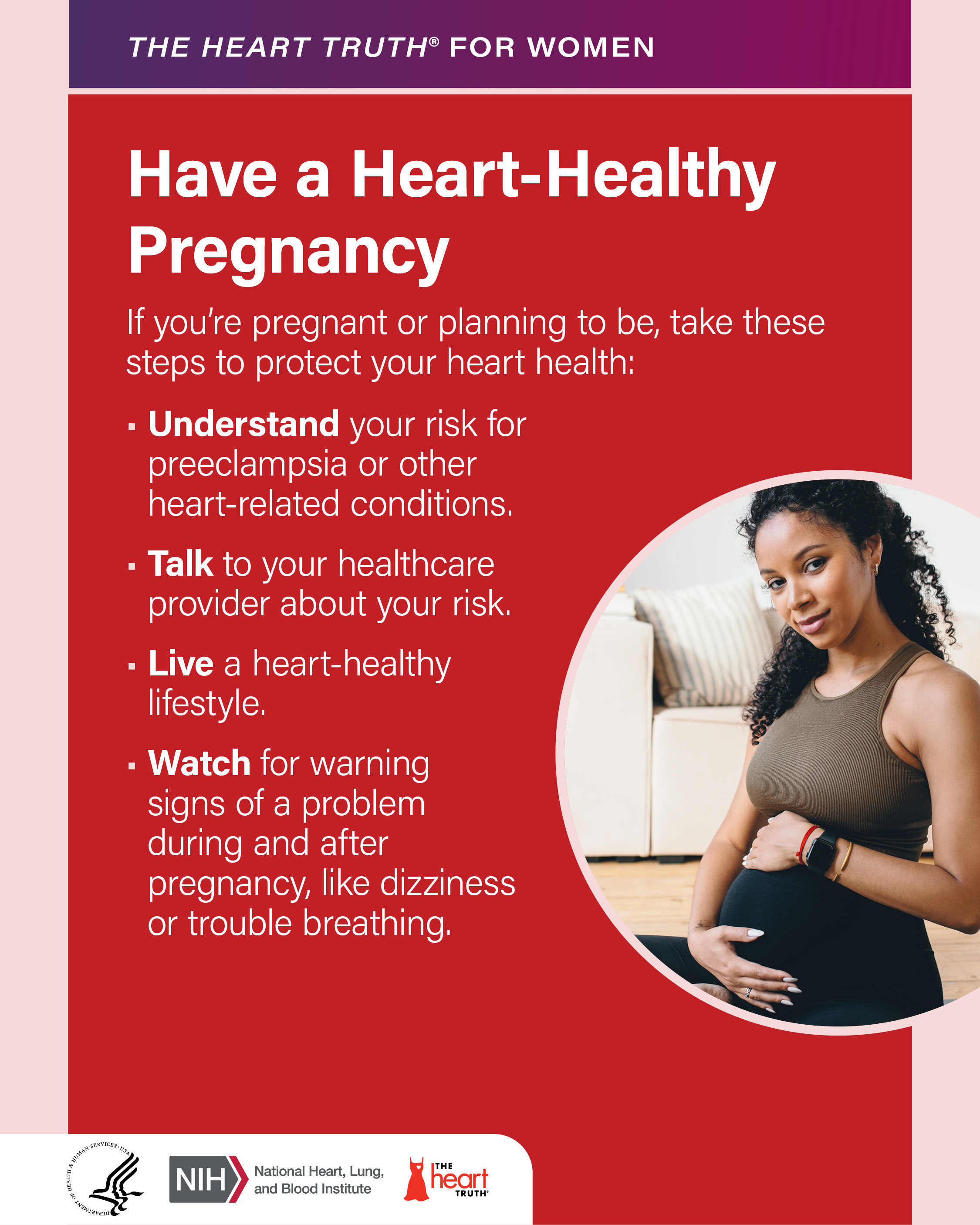

If you're pregnant or planning to be, take these steps to protect your heart health:
- Understand your risk for preeclampsia or other heart-related conditions.
- Talk to your healthcare provider about your risk.
- Live a heart-healthy lifestyle.
- Watch for warning signs of a problem during and after pregnancy, like dizziness or trouble breathing.
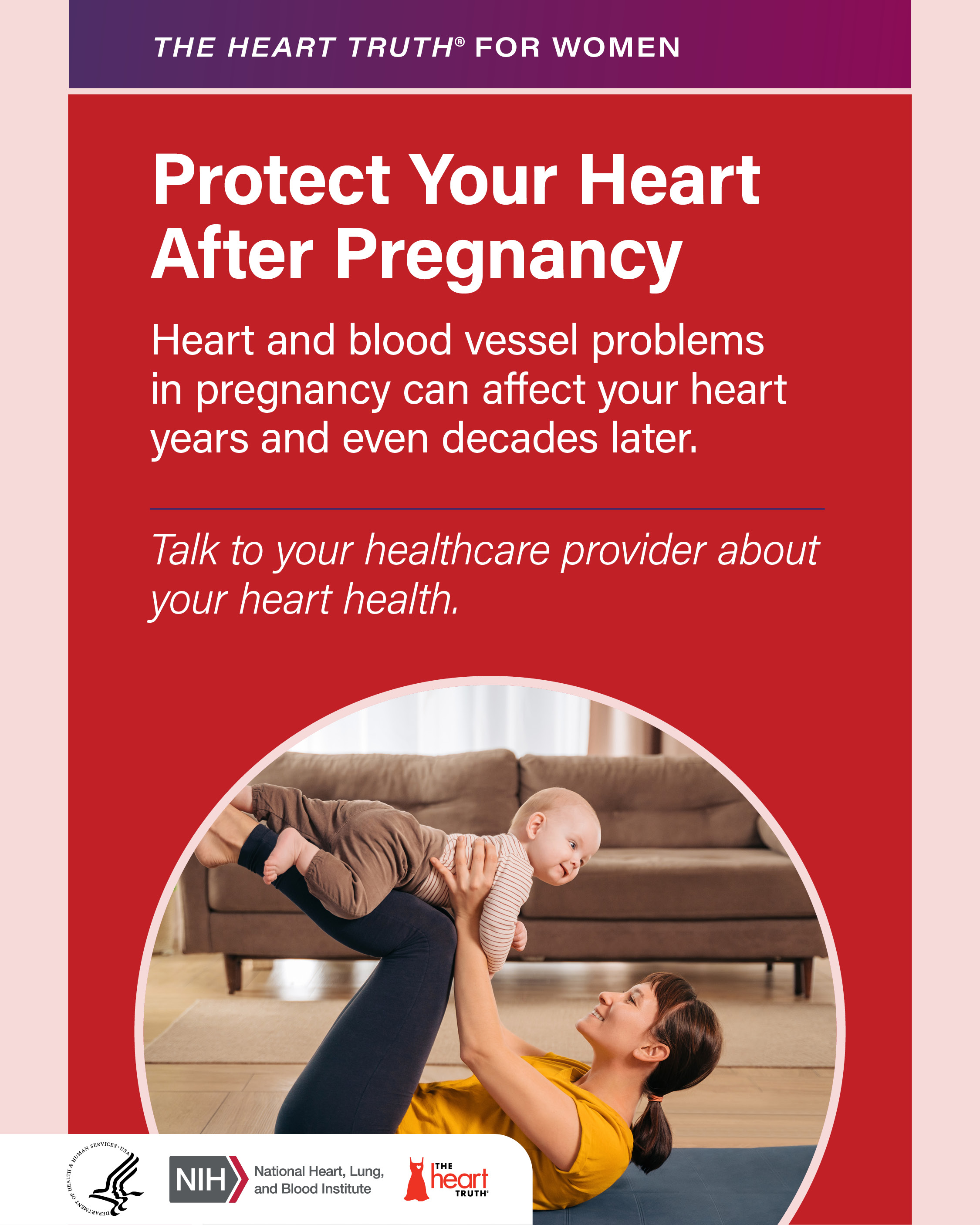

Heart and blood vessel problems in pregnancy can affect your heart years and even decades later.
Talk to your healthcare provider about your heart health.
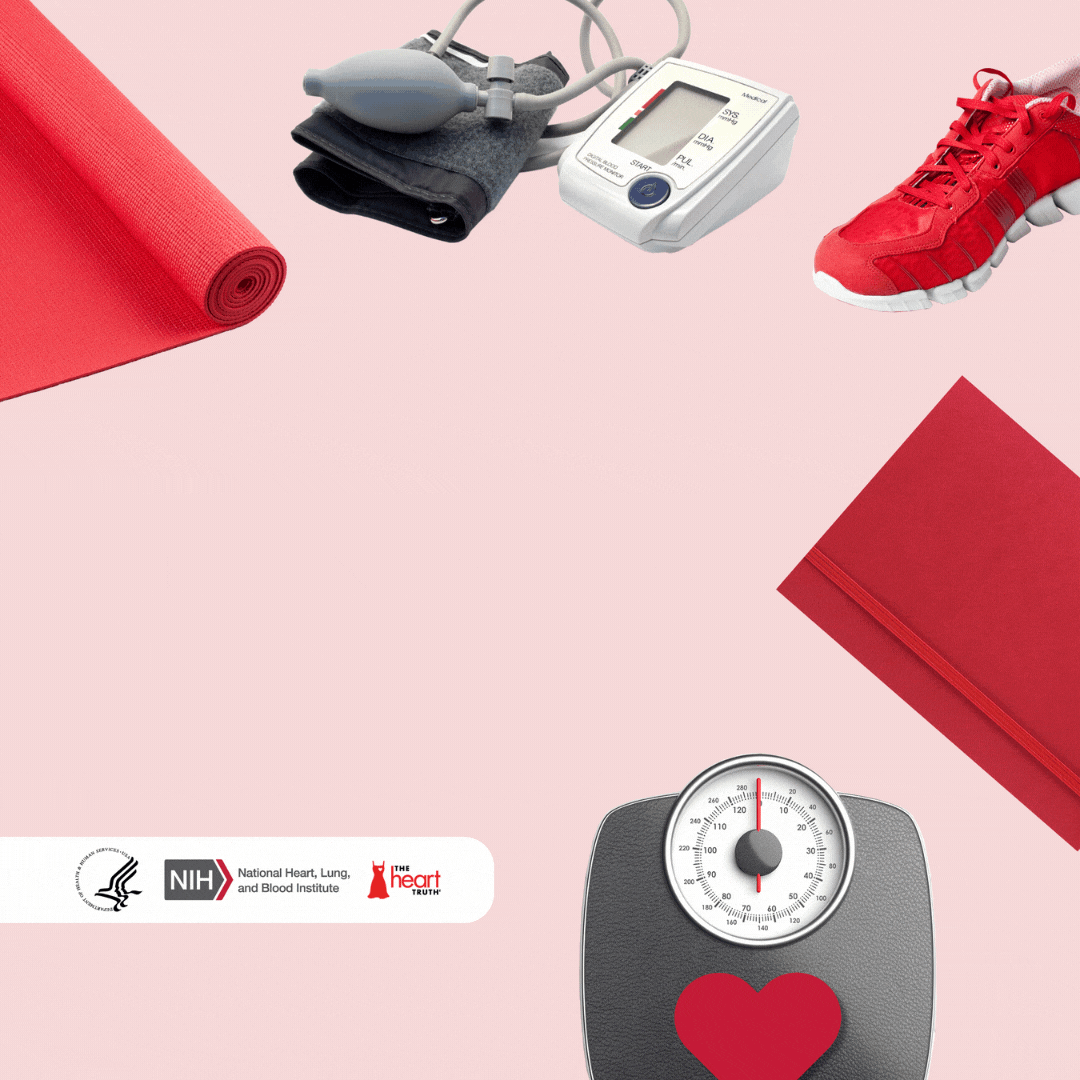

Practice self-care for your heart and control your blood pressure before, during, and after pregnancy.
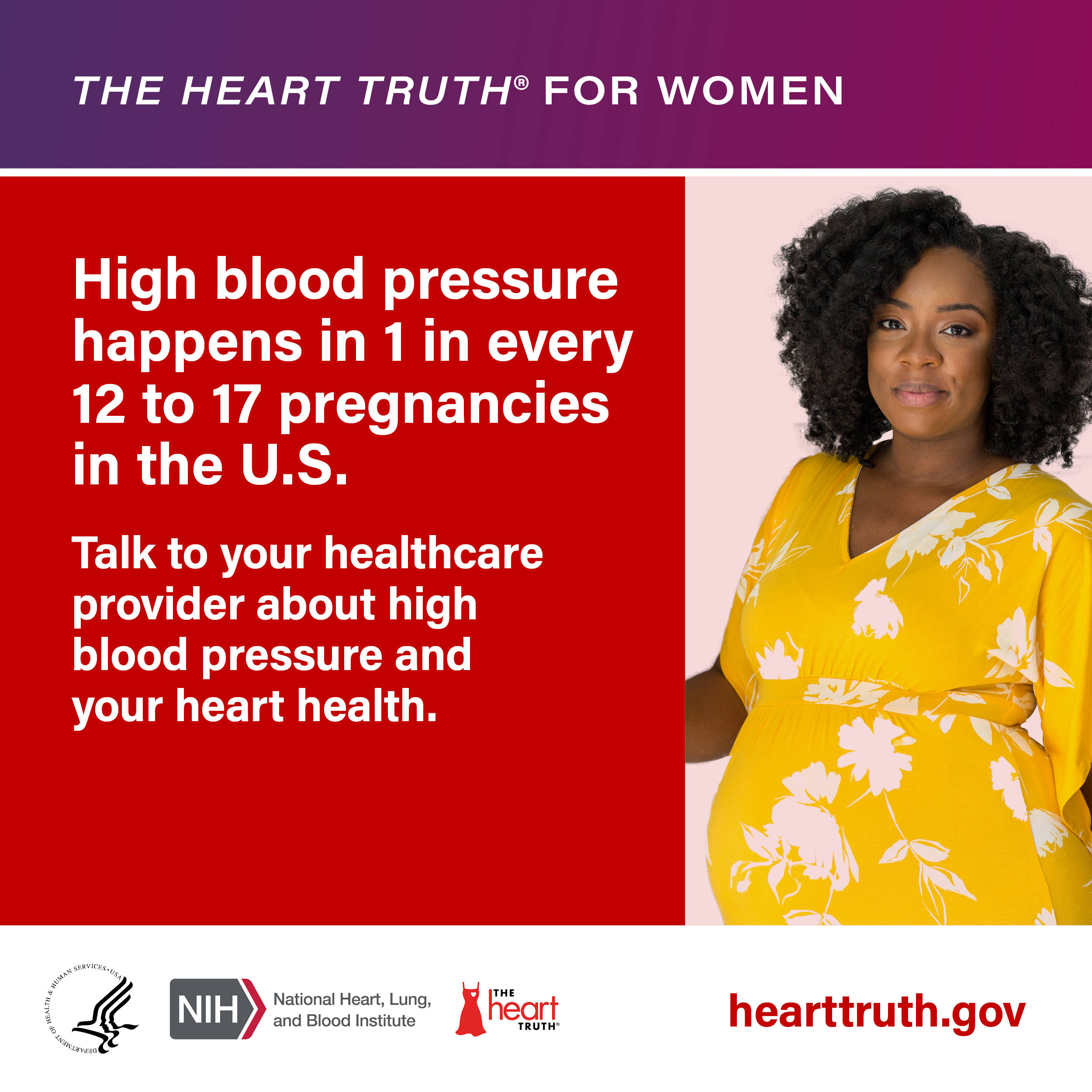
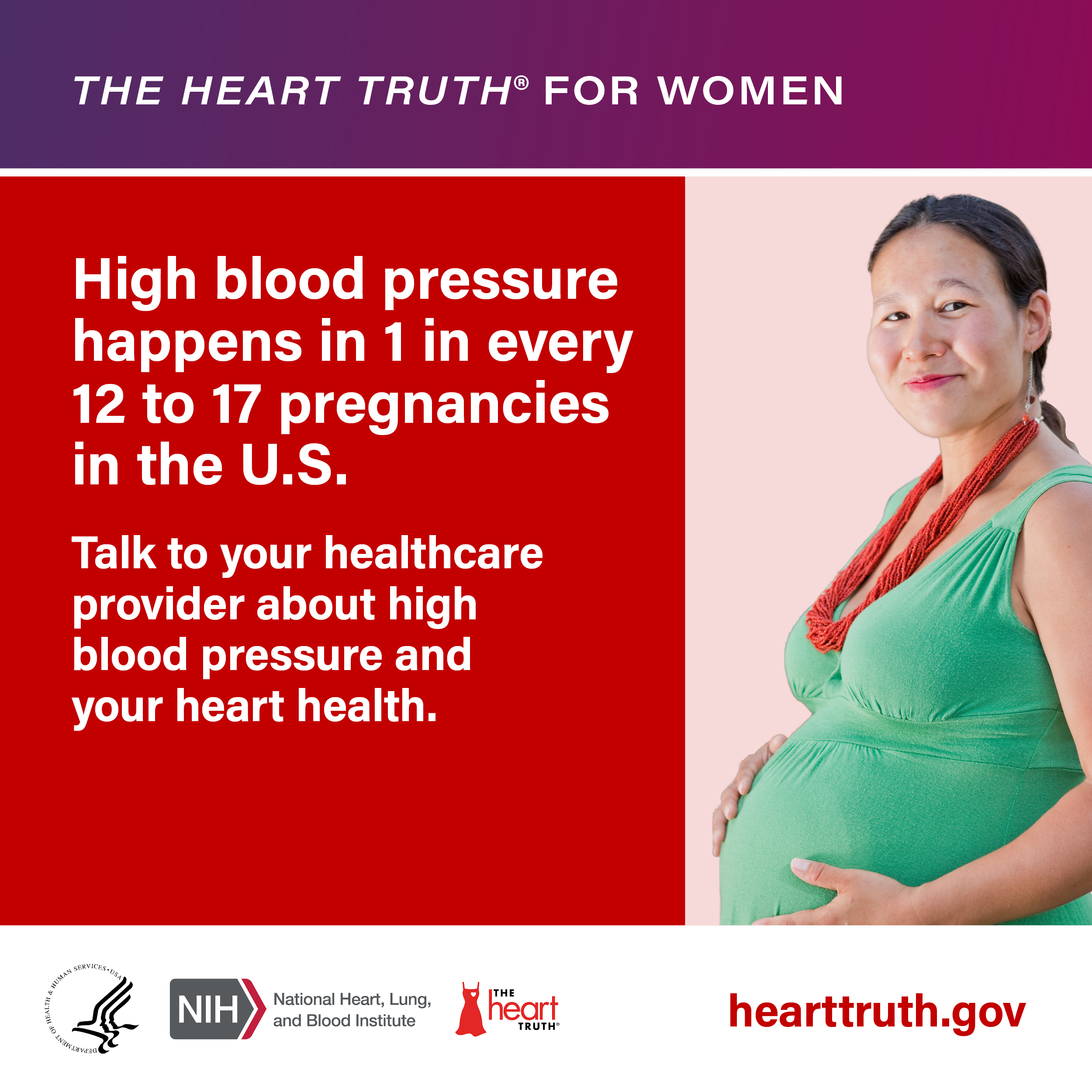


Watch for warning signs of a heart problem, including high blood pressure, during and after pregnancy.
Signs include: worsening headache, overwhelming tiredness, dizziness, trouble breathing, chest or belly pain, swelling, nausea. If you feel like something is wrong, get medical care right away.
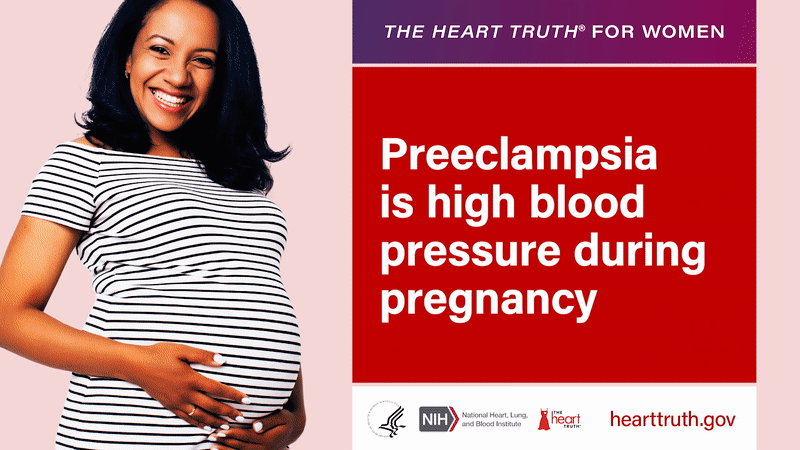

Preeclampsia is high blood pressure during pregnancy and signs that your organs are not working well. It develops after 20 weeks of pregnancy. Sometimes there are no signs of it, but watch for sudden weight gain over 1-2 days or swelling in your hands or face. Having preeclampsia increases your risk of high blood pressure, heart disease and stroke later in life.
Talk to your healthcare provider about your blood pressure.

